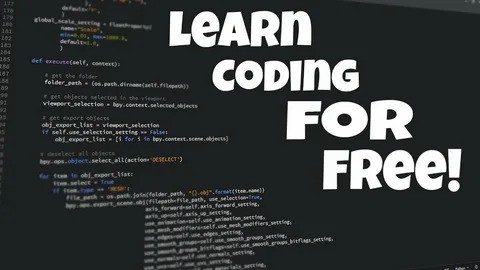7 Hidden Free Courses from Harvard, MIT & Stanford
Let’s be real: Everyone talks about the same 3 free courses online—CS50, MIT Python, and Stanford AI. Great picks, but if you’re serious about leveling up for free, there’s a goldmine of lesser-known but incredibly powerful courses offered directly by the Ivy Leagues.
These aren’t YouTube crash courses or recycled Udemy freebies. These are real academic courses from Harvard, MIT, and Stanford, with lecture videos, assignments, and even certificates in some cases.
No fluff, no paywalls. Just world-class content that’s mostly hidden from mainstream lists.
🎓 1. Harvard’s “Contract Law: From Trust to Promise to Contract”
What you’ll learn:
-
Legal reasoning and how contracts work
-
How to think like a lawyer (seriously useful in business)
Why it matters:
Perfect for entrepreneurs, freelancers, or anyone who signs agreements.
Learn how to not get screwed.
Certificate? Yes (optional paid)
🧠 2. MIT’s “The Analytics Edge”
What you’ll learn:
-
Data science, analytics, prediction models
-
How to apply R to solve real-world business problems
Why it matters:
Taught by actual MIT professors, this course is practically an MBA-level crash course in data-driven decision making.
Certificate? Yes (free if audited, or paid for verified)
🤖 3. Stanford’s “CS106A: Programming Methodology”
🔗 Watch on YouTube
🔗 Assignments on Stanford website
What you’ll learn:
-
Real coding principles using Python
-
Problem solving and structured programming
Why it matters:
Stanford’s intro CS course is way more beginner-friendly than CS50 and goes deeper into actual software design thinking.
Certificate? No, but skills are 100% real
🧪 4. MIT’s “How to Build (Almost) Anything”
What you’ll learn:
-
3D printing, electronics, CAD, microcontrollers
-
Building physical + digital prototypes
Why it matters:
It’s taught by Neil Gershenfeld, founder of the FabLab movement. Perfect if you’re into hardware, IoT, or product design.
Certificate? No, but open access to materials
💼 5. Harvard’s “Entrepreneurship in Emerging Economies”
What you’ll learn:
-
How to spot opportunities in broken systems
-
Entrepreneurship principles for global impact
Why it matters:
This isn’t your typical startup bro course—it teaches real solutions for complex problems, especially relevant to South Asia, Africa, and Latin America.
Certificate? Yes (paid optional)
🧬 6. Stanford’s “Introduction to Logic”
What you’ll learn:
-
How logical arguments work
-
Predicate logic, proofs, deduction
Why it matters:
Ideal for coders, lawyers, or debaters—sharpens your critical thinking like a mental gym.
Certificate? No, but priceless thinking upgrade
📊 7. MIT’s “Financial Accounting”
What you’ll learn:
-
Income statements, balance sheets, cash flows
-
How to read and analyze real financials
Why it matters:
This is the foundational accounting course from MIT’s Sloan Business School. A must-learn if you’re into startups, investing, or freelancing.
Certificate? Not on OCW, but all materials are free
🔥 Bonus: How to Make the Most of These Courses
-
Audit mode = Free: On platforms like edX and Coursera, always choose audit to access full content without paying.
-
Track progress with Notion or Google Sheets: Stay consistent with weekly check-ins.
-
Document your learning: Write blog posts or tweet summaries — this helps retention and builds an online presence.
-
Combine with practice: Pair courses with projects from GitHub or Kaggle depending on the subject.
-
Certificates are optional: Employers care more about what you can do than a PDF.
🧠Don’t Sleep on These Ivy-League Hidden Gems
In a world of $10K bootcamps and overpriced webinars, these free courses destroy the “I can’t afford it” excuse. The only thing standing between you and a Harvard-level education is effort—not money.
If you do even 2 of these courses and apply them properly, you’re already in the top 1% of self-learners globally.



